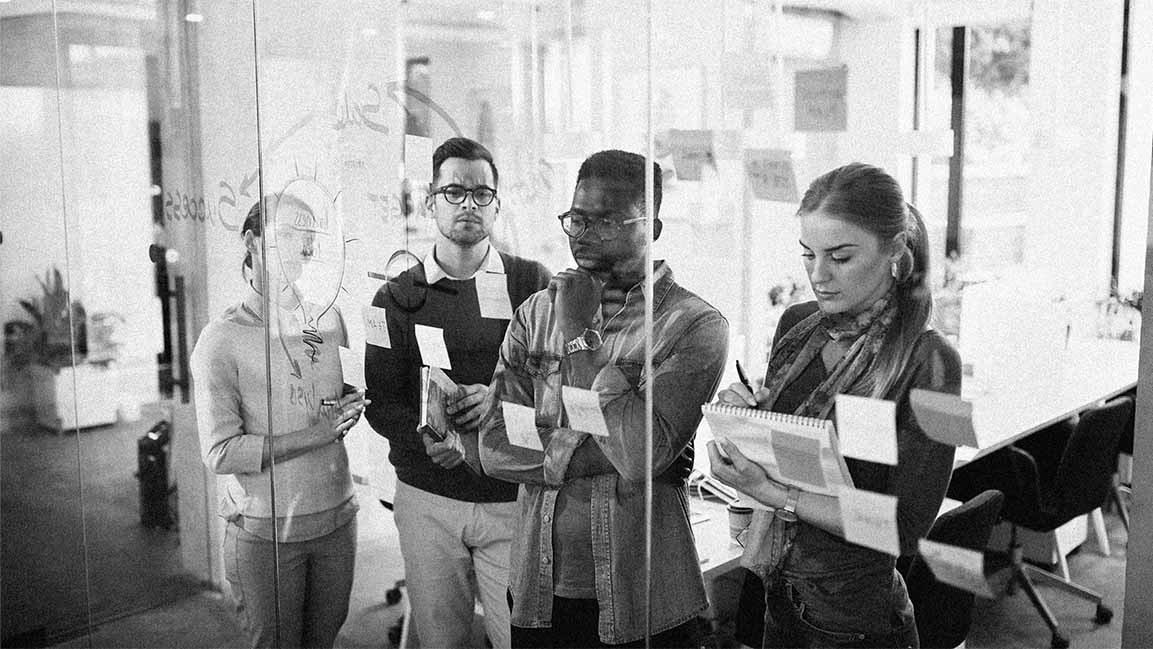- | 9:00 am
3 interview questions recruiters are asking right now, related to the future of work
Every sector is discussing the impact of artificial intelligence.

There is so much buzz about the future of work—from the implications of ChatGPT to managing remote teams. How does this new way of working translate to what organizations are looking for in potential candidates?
I’m an executive coach and career strategist, and I have found that recruiters are asking a new generation of questions that are related to the future of work.
If you are preparing for an interview, I strongly recommend that you think about how to answer the following three interview questions that recruiters are now asking—and how to demonstrate your strengths in the process.
1. HOW DO YOU STAY CONNECTED IN A HYBRID OR REMOTE ENVIRONMENT?
Many recruiters believe that organizational culture and finding the right candidate who fits that culture has never been more critical. This means that hiring managers are spending more time getting to know candidates as people.
“We’ve just come through something significant in terms of the pandemic, and it’s changed people at their core. It’s changed how, what, where, and when they want to work. The stakes have never been higher for both candidates and the organizations doing the hiring,” says Jim Zaniello, president and CEO of executive search firm Vetted Solutions.
Connection with our colleagues is essential to creating a collaborative organizational culture and boosting morale, yet many of us spend hours working physically distanced from one another in virtual meetings. Those informal yet meaningful hallway conversations are no longer as common. According to Zaniello, “Organizations have a higher level of responsibility to evaluate fit, especially if they are remote first. While we can send a Slack or do Zoom or Teams Meetings, everyone has to work a lot harder to ensure success.”
Therefore, in interviews, candidates should expect questions about how they stay connected and achieve their best work in a remote or hybrid environment. They can differentiate themselves by identifying practices to stay connected. Dedicated virtual one-on-one time with team members is of prime importance. In-person office time without virtual meetings, prioritizing coming together in person, and meetings to catch up informally are some practices worth mentioning.
2. HOW DO YOU SUPPORT DIVERSITY, EQUITY, AND INCLUSION?
More and more organizations are committing to diversity, equity, and inclusion (DEI), and many are adding resources to reach those goals—rather than just talking about them. Candidates should be prepared for questions about how they contribute to creating inclusive environments and support DEI. As a candidate, it is important to assess where the organization you are interviewing with is on its DEI journey.
“There have been a lot of cases, especially since the events of 2020, between COVID-19 and the murder of George Floyd, where organizations have done their very best to get it right pertaining to inclusion and diversity and equity,” says talent executive Myra Briggs. “Other organizations have looked for a quick fix—which has shown up in all kinds of nasty ways. Sometimes, on the side of, ‘Let’s hire a bunch of people of color, not necessarily positioned as appropriate for these roles, but at least we can say that we’ve made the effort.’ Ultimately, this further perpetuates the myth that people of color are not high performers.”
Briggs believes that it’s essential for all candidates, but especially candidates of color, to understand the organization’s commitment to DEI and how they fit into it. Similarly, organizations committed to DEI must believe diversity of thought is beneficial to the organization and teams, so they will dig deep into these questions with candidates during the interview process.
3. HOW OPEN ARE YOU TO WORKING WITH NEW TECHNOLOGIES LIKE CHAT GPT?
Every sector is discussing the impact of artificial intelligence (AI) on the economy, jobs, and the future. While it is a hot-button issue, we don’t have the full picture of the implications of AI for any industry just yet.
“Unless they are software engineers or applying for a job in technology, candidates need to understand that whoever is interviewing them is probably not an expert in AI either. So, organizations are looking at a candidate’s attitude and not just their aptitude. Candidates should show they can think about AI strategically, as part of the team,” says Margo Christou, founder and principal of executive search firm Conexa Search. Candidates should show they are open to working with technology and AI, while realizing they don’t need to have all the answers. For example, they can share new ideas in this booming period of trial and adoption of AI.
Some industries, like healthcare and financial services, have been early adopters of AI. Christou says, “If you’re going into an interview in industries that have already adopted AI, you should at least read up on what is going on in AI in that vertical, and research the AI technology already being used in that industry.”
While these are a few of the new questions recruiters are asking today, candidates should still be prepared for more traditional questions like identifying their career goals, strengths, and weaknesses. However, as Briggs points out, “There is a real war for talent. The Great Resignation has made employers stand up and realize that this interviewing and job-hunting process is a two-way street.” This means candidates need to be ready to have authentic conversations in which they can better understand the organization and the organization can better understand the candidate.
And if you’re not asked one of these three questions? Go ahead and ask them yourself. You’ll communicate that you are prepared and in touch with the most critical topics impacting the world of work today.








































